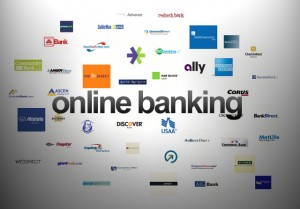 Before online banking made it possible to check your balance from anywhere, managing the books for your business was much more complicated. Deposits required trips to a local bank branch. Initiating a transfer often required signing numerous physical forms and meeting with management to approve the transaction. Today, everything from routine banking to major transaction can be completed online. Here’s a closer look at specific services that small businesses are using to save time, money, and stress on the banking front.
Before online banking made it possible to check your balance from anywhere, managing the books for your business was much more complicated. Deposits required trips to a local bank branch. Initiating a transfer often required signing numerous physical forms and meeting with management to approve the transaction. Today, everything from routine banking to major transaction can be completed online. Here’s a closer look at specific services that small businesses are using to save time, money, and stress on the banking front.
Balance your Books Online
Many businesses need to balance their books on a daily, weekly, or monthly basis. Being cognizant of cash flow, what checks have been cashed, and what incoming deposits have occurred is an important step to keeping your company’s finances on track. With online banking, you’re able to log in from any computer or mobile device using a username and password. You’ll be able to view your current balance, recent transactions, and any holds or pending transactions on the account.
Send Payments and Wires Online
Many banks now offer the ability to send payments and wires online through their online banking portal. Companies use this to set up recurring payments to employees, pay bills, and make one time transfers in the case of refunds or similar circumstances. In many cases, these online transactions are free because they reduce the amount of work your bank needs to do. Ask about the specific costs of online transactions and whether you’re allowed a specific number each month before you engage in the process.
Deposit Checks Digitally
A number of financial institutions are now allowing members to deposit checks without having to physically deposit the check. Instead, these banks have instituted a system that allows you to upload an image of the check. In many cases, there’s an additional hold time but checks clear. But for businesses that value convenience over immediate access to funds, this feature can be a highly valuable asset to any checking account.
Integrate Accounts with your Accounting Software
Gone are the days when you had to wait for a paper statement to see what your current transactions looked like, or go to the nearest branch to get information on what cash you had available. But the instant nature of online banking has another benefit: the ability to connect your account data to your accounting software. In fact, it’s possible to set up access so that your accounting program automatically downloads this information. Whether you’re using QuickBooks, Freshbooks, or another program, keeping your accounting team up to date with the latest information is easy.
Monitoring Account Security
Banks take online security very seriously. Access is restricted on accounts to people with a username and password. Banks often require additional steps, such as a pin or a successful security question challenge. It’s now possible to monitor your account’s security 24/7. Most accounts with notify you via email if you have a failed login attempt or other security breach. It’s also possible to often review a login history and what tasks were completed during each login.
Online banking has opened up many avenues for business to bank better, bank faster, and more securely. From the ability to integrate account data with accounting software to the ability to transfer money at a click, managing your small business account has never been easier.
Learn more
Technology has changed the banking industry in a big way. It has made your money more secure, it has allowed you more access to your money, and it ...
The PPF rate of interest is applicable and paid on the PPF balance, and the interest rate is fixed every year. The last decade has seen a lot of f ...
A business bank account is really a necessity; it could make for ease and straightforwardness when balancing stats. Not possessing a business acco ...
Whether you have bad credit and cannot get a regular bank account or simply want to ...
Many people have the misconception that the stock market is only for the rich. They may also believe that developing a stock portfolio means you n ...





